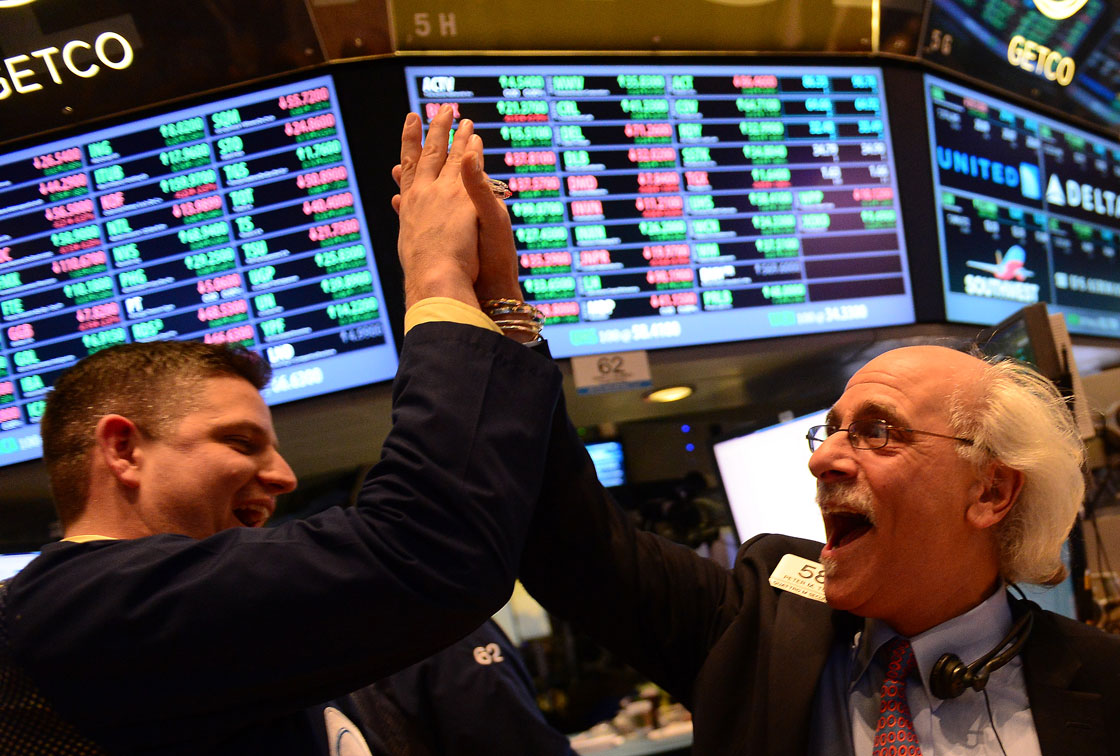If the global economy is labouring under sluggish growth, the stock market hasn’t noticed.

The Dow Jones Industrial Average, the main stock index in the United States, broke through an all-time high on Monday on better-than-expected corporate profits this fall amid a backdrop of government stimulus that’s propping up a lacklustre economy.
The Dow passed over the 16,000 point mark for the first time in its history early Monday, rising 54 points to 16,015. The S&P 500, another index housing big-name bluechip U.S. stocks such as phone giant AT&T Inc., Coca-Cola Co. and Warren Buffett’s Berkshire Hatheway rose above 1,800 points for the first time as well.

Get weekly money news
The immediate catalyst to Monday’s gains was news from China that it is taking additional steps to open up its economy, sending share prices to near six-year highs globally, according to Reuters.
In Canada, the Toronto Stock Exchange hit a two-year high on Monday. The TSX is still some distance from eclipsing its record close of 15,047 points witnessed on May, 18, 2008.
The financial crisis of that autumn threw the global economy into a dizzying tailspin most investors will well recall, forcing central banks to slash already low interest rates to zero and pump hundreds of billions into the economy to ward of a depression.
Five years later, record low interest rates in Europe, North America and elsewhere persist amid a sluggish recovery, while the U.S. Federal Reserve continues to flow $85 billion a month into the world’s largest economy.
The measures have kept stock prices rising this year, and with the threat of higher interest rates dampening economic activity now receding, the rally looks poised to continue, experts say.
“All the ingredients are there for the market to go higher,” Peter Cardillo, chief market economist at Rockwell Global Capital, a New York investment firm, told nytimes.com.
However, with cheap credit and government stimulus continuing to support stocks and other assets — as opposed to stronger fundamental economic growth — some, including Canada’s own Bank of Montreal, are drawing attention to the possible inflation of a broad-based bubble.


Comments